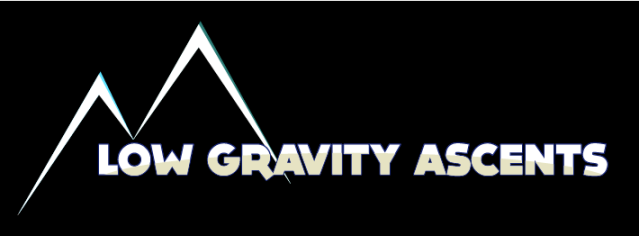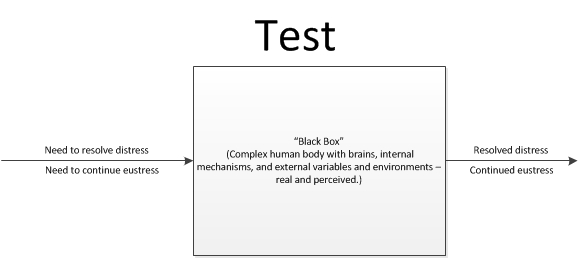A couple weeks ago, I read this post by Movement mentor Craig Keaton: Two Questions That Forever Changed How I Eat. I passed it along to several friends that struggle with eating/nutrition belief systems and the resulting brain dump ensued after the following statement was made to me:
In regards to this quote in the post: “Do you have positive responses from ‘bad’ foods?” I’m guessing this was a gross oversimplification of a more complex system, because all it makes me think is that if I like eating 25 chocolate bars, I should do it.
Ask Better Questions
Eating chocolate bars to feel good is absolutely what he means, but there are several other factors at play as well. It’s ok to eat bad foods as long as you’re conscious about the reason you’re eating them and/or how many of them you’ve eaten. It depends on the questions you asked yourself before deciding to eat them too, whether it’s because you’re celebrating or you’ve just received some bad news.
The questions you need to ask yourself are based on Maslow’s hierarchy of needs. These are the necessities to life itself, and at its core, the brain is programmed for self-preservation. By relieving your brain of these (real or perceived) stresses, you free up more mental space for fun and positive thoughts.
1. Biological and Physiological needs – air, food, drink, shelter, warmth, sex, sleep.
2. Safety needs – protection from elements, security, order, law, limits, stability, freedom from fear.
3. Social Needs – belongingness, affection and love, – from work group, family, friends, romantic relationships.
4. Esteem needs – achievement, mastery, independence, status, dominance, prestige, self-respect, respect from others.
5. Self-Actualization needs – realizing personal potential, self-fulfillment, seeking personal growth and peak experiences.
There are infinite options within each of these needs so to provide some specific examples, I usually ask myself the question, “Can I ______?”, in this order, from good to bad:
- Air – Sit and breathe. Relax. Think.
- Movement – Climbing. Kettlebells. Bodyweight training. Mountain biking.
- Self-Actualization – Writing. Social media. Brainstorming. Daydreaming.
- Time in nature – Go for a hike. Go for a walk. Work in my garden. Climbing. Camping.
- Drink – Water. Coffee. Tea.
- Eat – Meat. Fruit. Vegetables. Nuts. Trailmix.
- Sex – (lol?)
- Sleep – Power nap. Bed for the evening.
- Lack of movement – Watching TV. Facebooking. Watching a movie.
- Drink – Beer. Alcohol. Fancy coffee (tons of sugar and cream and chocolate)
- Food – Chocolate bars. Chips. Cookies. Cake. Ice cream.
Bad Stress (Distress)
Because my goals revolve around freelance, living in a van, becoming a stronger climber, and my overall physique, you can see why I’ve prioritized the list in the way I have. Most of the activities and alternatives support those goals. The bottom three, do not. But they do serve a purpose.
The reason eating chocolate, or even eating 25 chocolate bars, isn’t bad for you is that it’s resolving stress.
The expedient resolution of a distressful state through bad food may actually be better than prolonging, or making worse, a distressful state.
If you’re eating them for stress relief or boredom, you also need to ask yourself, “What else could I do instead?” If you can answer that question easily and the resulting action is not self-destructive, great! Go do that instead! But if you’re in a funk and nothing comes to mind immediately, start asking yourself the questions above.
Good State/Good Stress (Eustress)
If you’re having a fantastic day and feeling great about the world and your life and want to celebrate, you can still go down that same list. Start with things that support your goals and ambitions and work your way down to the bad stuff. If you’ve determined that eating chocolate is the best thing you can do for yourself, great!!! But that’s not a free pass to overindulge. Calories are still a thing and you should still be mindful of your goals. Celebrate, acknowledge your achievement, and move on.
Be Conscious because Calories Still Mean Something
Whether you’re eating because of a distressful state (this is where chocolate has a negative association) or a eustress state, you must still be conscious of how much you’re eating. Calories mean something but you might not know everything they mean.
There are mechanisms inside the brain and the body that are triggered by eustress and distress. That stuff is complicated and absolutely no one has them figured out in a system-wide application. Some people have some parts of individual mechanisms figured out in isolation, but when you start adding in the endless variables of the human body, psyche, and external environment (real or perceived), almost no ‘facts’ are agreed upon. What more and more people are agreeing on though, is that when you’re under distress, you don’t utilize the nutrition and calories available in your body as efficiently as when in a eustress state.
I am firmly planted in the Calories in, calories out camp when a diet is analyzed over a significantly relevant period of time, but, on a day-to-day basis, I know that’s not all that’s going on. This is why sometimes you just look at food and gain five pounds, and sometimes you eat five pounds of food in one sitting and still manage to lose weight the next day. Eating an excess of 3,500 calories in a single day will not lead to a calorie-for-calorie match in fat storage, but if you string three, four, five, 14 days of those together, you will start to notice a change for the worse regardless of your reason for eating that much.
So again, on a singular day, if you need to resolve a stress in order to move on and the only way to do that is by eating 25 chocolate bars, go on with your bad self. That’s better than eating 10 chocolate bars 10 days in a row if you haven’t resolved the stressor or tried something else to continue positives in your life.
Simplifying the Complex
Up to now, I’ve confirmed the belief that the original comment was a gross oversimplification of a complex system, but I felt you needed some background information. All of that complexity should now disappear by disregarding mechanisms, variables, psychology, and taking the ‘black box’ approach.
The Movement creators and practitioners use a method to test which choice (Maslow’s hierarchy) is best for you at that specific time, given a specific stress. Once you find which method is best, you can then test specific items beneath that. For instance, if eating chocolate bars is the best thing for you to do to resolve that stress, you can test which chocolate bar you should eat (if you want) and how many you should eat. Until your intuition, knowledge, and experiences are sufficiently informed through testing, you could test after each bite if you’ve had enough. This will prevent you from overindulging (assuming you’ve bought into the validity of the test which is a monstrosity of a barrier for almost 100% of new practitioners).
After you’ve used this method and noted which methods work the best to resolve specific stressors over time, you will start to inform your intuition for any time you encounter a stress in the future. When your test results start to match what your intuition is telling you a significant number of times, the test becomes obsolete (but can still always be used when there’s doubt).
In application, this ‘overly complex system’ looks like this:
1) Why do I want to eat chocolate?
2) Can I do something else instead?
3) Test other options
4) Chocolate is best? Ok. How much?
5) Test quantity
My Application
So, is the decision to eat chocolate a complex decision? This novel makes it seem like it, but it’s really not. It starts with psychological state at the time of the desire to eat chocolate, a few simple questions, and the test. The complexity goes away by being sensitive to the sensations of my body, informing my intuition and experiences through testing, and being conscious of the outcomes of my actions. After a while, the test goes away, and then it becomes even simpler.
This is why all of my training and nutrition advice is counter to what people believe. Because my only belief system is to not believe in belief systems and only do the things that test well for you, at that given time, to support your goals. I question everything. I question good food vs. bad food. I question good form vs. bad form. I question reps and sets. I question the usefulness of an FMS exam. I question if foam rolling is actually doing something for you physiologically or psychologically. I ask you questions that force you to question your own beliefs.
It is only once you start listening to what your body is telling you that you can make the fastest possible progress, no matter what Men’s Fitness and Shape are telling you.
This is why, regardless of the actual question you’ve asked me to help you with, I almost always address your psychology, whether you realize it or not. Because a lot of people have a lot of belief systems that are holding them back.
If you’re interested in more of this rabbit hole, I’ve included some additional reading I wrote four years ago. This is important because 1) It shows how far ahead The Movement has been in regards to the rest of the industry, 2) The quality of writing may be less than you’re used to, and 3) The pictures got lost in the domain transfer from AthleteCreator to LowGravityAscents.
Psychological state management Part 1: lowgravityascents.com/2010/10/20/my-journey-with-state-management/
Psychological State Management Part 2: At what cost? lowgravityascents.com/2010/12/16/psychological-state-management-part-2-new-methods-but-at-what-cost/
The most anabolic things in life (this is a psychology post masked in humor with ‘on the surface’ examples.) https://lowgravityascents.com/2010/07/19/the-most-anabolic-things-in-life/








